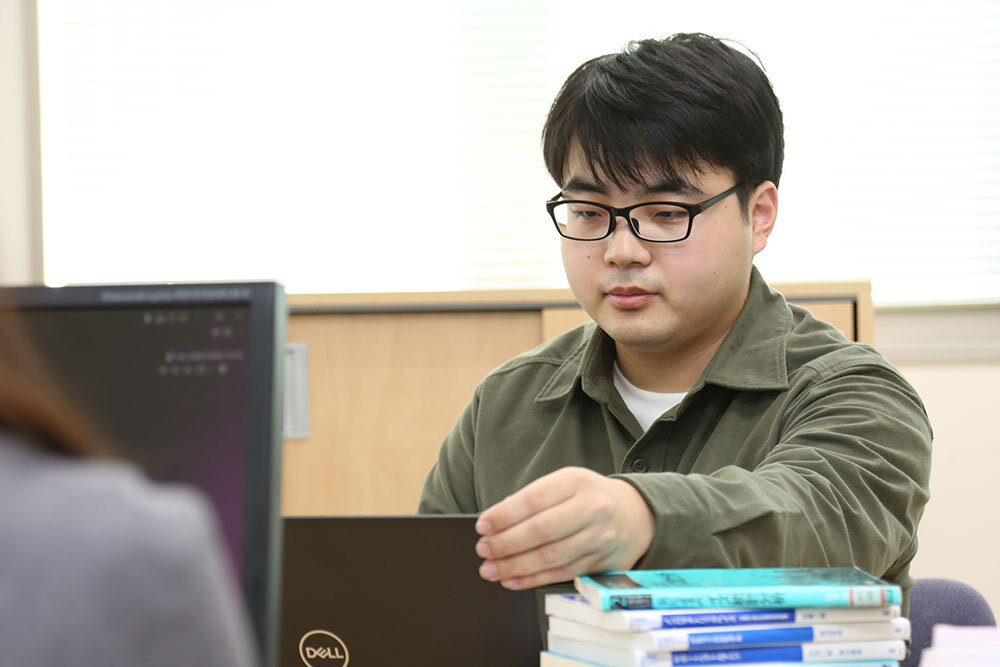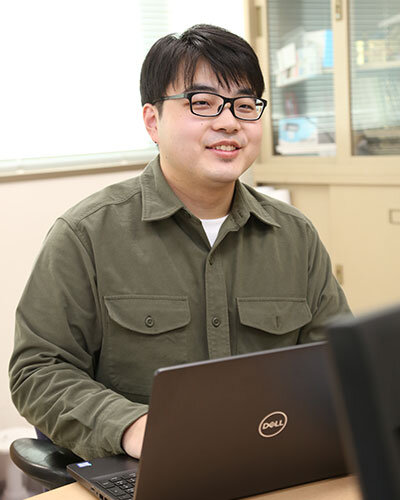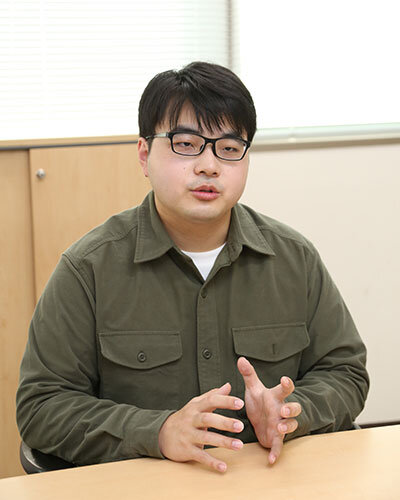INTRODUCTION学生紹介
- HOME
- support
- Student Introduction
- HIWATASHI RINTARO
STUDENT INTRODUCTION
Marine Policy and Management
HIWATASHI RINTARO
Specializations:Marine Management
Main academic advisor:KITAKADO, Toshihide
Mentor:SEKIGUCHI, Yoshiyuki / YOKOTA, Masashi

Loads of helpful advice from multiple internships fueled me on the path to the doctoral program and further research
Using AI to calculate optimal catches and properly manage the fishing industry
My research involves using reinforcement learning to manage the fishing industry.
Throughout the fishing industry, people are researching how to manage the industry to avoid overfishing and, conversely, excessive restrictions. They rely, however, on rough estimates or their own feelings to determine how much is too much or not. The aim of my research is to bring AI into the process of determining optimal figures.
 The actual reason I joined my current laboratory was my interest in applied technology and mathematics, rather than a preexisting interest in the fishing industry. I wanted to use certain technology in my research, and this laboratory happens to deal with the fishing industry, so that is how the match began.
The actual reason I joined my current laboratory was my interest in applied technology and mathematics, rather than a preexisting interest in the fishing industry. I wanted to use certain technology in my research, and this laboratory happens to deal with the fishing industry, so that is how the match began.
My research involves policy decisions that determine the figures for catches in the fishing industry. Present catches were determined based on existing practices or one-off trials that worked well enough to be repeated. What I find interesting is that we can use AI to explore the evidence and arrive at better figures.
Finding optimal figures requires a lot of calculations. Although it's difficult to find the perfect figures manually, running the numbers through AI allows us to try more patterns. This, in turn, allows us to find better methods more efficiently, so I think it is beneficial to use AI to advance the research.
In the area of fishing industry management, fishermen have the goal of catching as much as they can that year, or achieving the greatest economic value. Recently, however, changes in the environment can suddenly make it nearly impossible to catch sufficient fish. There must be a way to achieve the most consistent catches possible, rather than simply catching a lot or making a lot of money. My research will also help protect ecosystems, and through it I have developed a desire to work on these kinds of things.
The WISE Program brought structure to my self-study of AI
I decided to join the WISE Program because I wanted to do research on AI-based management for my undergraduate thesis. I also wanted to continue on to graduate school, and the program offers various types of support.
The AI Learning Program was particularly appealing. The WISE Program was ideal for me because I had studied AI on my own and wanted to learn it more systematically.
The classes have made me aware of fundamentals I had overlooked in my self-study and given me an overview of the techniques I lack and the areas that would be useful for my research. Although the format varies from class to class, they are all very interesting and useful, whether they systematically cover basic techniques from square one or involve doing exercises in an omnibus format.
The lecturers are researchers on the cutting edge of technology, and we are able to learn how and what kinds of technology are being used on the front lines. It is also interesting to hear about fields beyond my own research area, for example molecular biology and engineering.
Loads of helpful advice from multiple internships
 The WISE Program has an internship system under which I had the chance to do internships at three different companies. They were fantastic opportunities to experience how AI is used in the real world in ways that are different from how it is used at the university.
The WISE Program has an internship system under which I had the chance to do internships at three different companies. They were fantastic opportunities to experience how AI is used in the real world in ways that are different from how it is used at the university.
Many of the company employees I met during my internships had completed doctoral programs. I wanted to take that same path, so the internships gave me the ability to talk with people about different programs and what kinds of papers they read when they were graduate students. I also benefited immensely from specific advice from one of them on my future career path. To sum up, the advice I received during my internships is proving very useful to me now.
I want to become a person who can leverage AI to excel in my field of expertise. I intend to learn much more about both AI and fisheries, to become an expert capable of applying the knowledge in the real world, and to continue my research.

